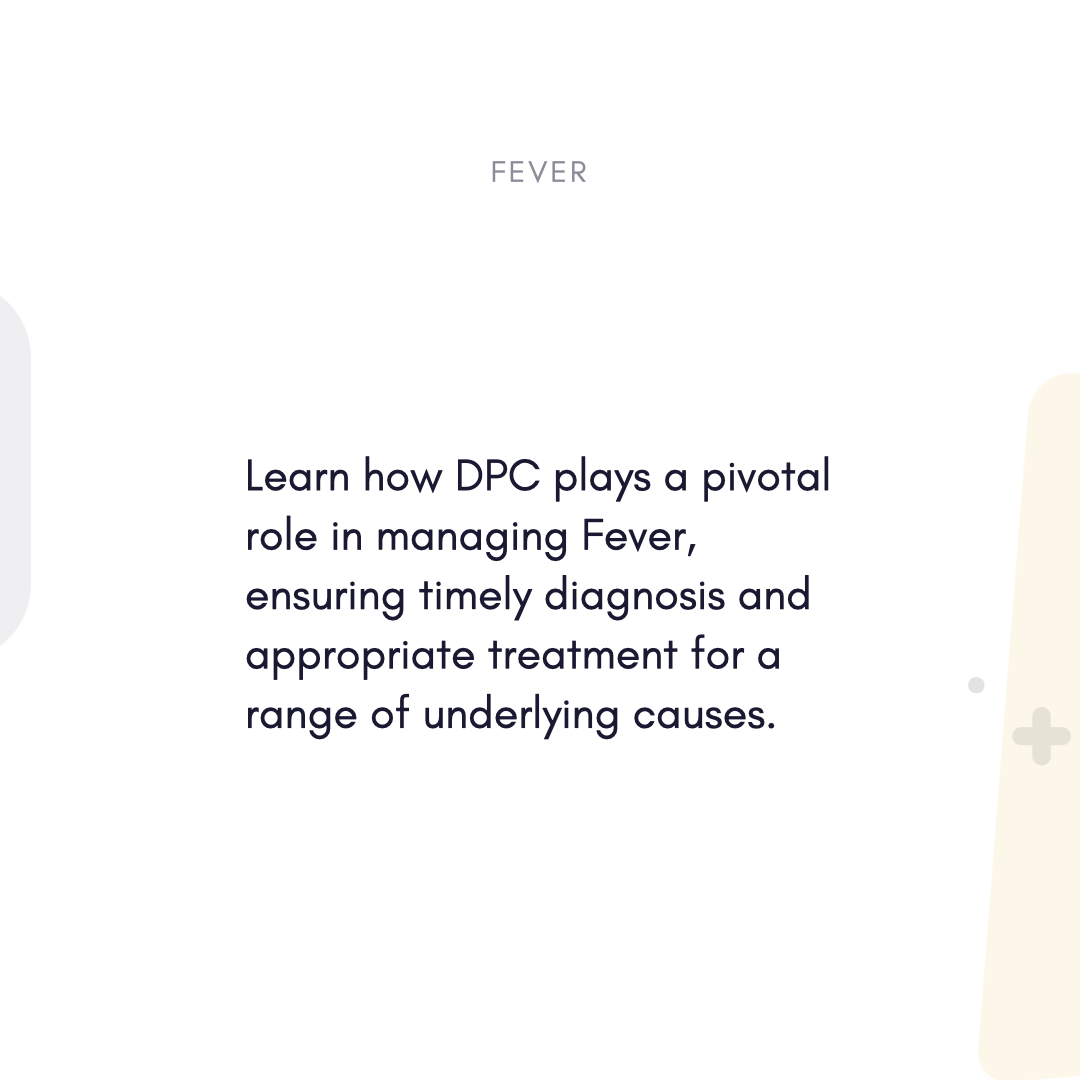Fever and Direct Primary Care (DPC): Timely, Tailored Care for Swift Recovery
You know how disruptive fevers can be if you have ever suffered from a pounding headache, insomnia with chills, or anxiety over a child's high temperature. Although usually a sign your body is fighting an infection, severe or recurring fevers need quick attention. Direct Primary Care (DPC) provides fast evaluations, accurate diagnostics, and individualized treatment to solve the underlying cause and restore your health, offering a simplified, patient-centered method of fever control.

Understanding Fever: When should I act?
- Your immune system responds to infections, inflammation, or other diseases with a fever—temperature above 100.4°F/38°C. Important reasons include:
- Viral (flu), bacterial (strep throat, UTIs), or fungal infections.
- Inflammatory problems include autoimmune diseases, drug reactions, heat exhaustion.
- Serious Illnesses:
- Rarely occurring post-surgical complications, sepsis, or pneumonia.
- See a doctor if:
- Your fever exceeds 103°F (39.4°C) or lasts more than three days.
- Symptoms including rash, trouble breathing, confusion, or extreme pain.
- Babies under three months old with any fever.
How DPC Improves Management of Fever
Using a membership model (USD 50–150/month), Direct Primary Care (DPC) cuts through insurance restrictions to offer:
- 1. Same-Day Review and Precision Examinations
- Appointments for urgency: Check high fevers over several hours, then avoid ER waiting.
- Rapid strep, flu, COVID-19, or urine tests for fast answers in-house.
- Same-day referrals for bloodwork, X-rays, or specialist consultations reflect advanced coordination.
- 2. Customized Treatment Strategies
- Prescribe antivirals or antibiotics at wholesale rates—that is, amoxicillin for USD 5.
- Guide sensible use of OTC/prescription fever reducers (acetaminophen, ibuprofen).
- For extreme dehydration, IV fluids—or electrolyte solutions—offer hydration support.
- Vaccines against flu, pneumonia, or COVID-19 will help lower recurrence of these diseases by preventive and continuous treatment.
- Management of chronic conditions: Treat diabetes or autoimmune diseases that raise fever risk.
- Track recovery and change treatment using secure messaging or telehealth.
DPC Benefits for Fever Patients
- 24/7 Accessibility: Direct provider contact for fever spikes or questions.
- Budget Transparency: Membership covers basic tests, consults, and care coordination; no surprise bills.
- Medications at 50–70% less than retail pharmacies.
- Holistic Focus: Instead of masking symptoms, find root causes—e.g., undiagnosed UTIs, Lyme disease.
Individualized Temperature Control in DPC
- Complete Assessment
- Detailed History: Search for causes by travel, exposure, or recent surgery.
- Look for rashes, swollen lymph nodes, or stomach sensitivity on your physical exam.
- Targeted Diagnostics Lab
- Based on symptoms, monospot tests, blood cultures, or CRP.
- Imaging: Abdominal infections ultrasounds, chest X-rays for suspected pneumonia.
- Tailored Attention
- Age-specific strategies:
- Little ones: Rule out major infections (such as meningitis) and advise parents on sensible fever control.
- Seniors and Adults: Search for tick-borne diseases, prostate infections, or sepsis.
- Travel-related fainters: With quick labs, test for typhoid, malaria, or dengue.
- Teacher of Patients
- Instruct methods for lowering fever (hydration, lukewarm baths).
- Children should not take aspirin and should avoid overuse of antipyretics.
Scenarios from Real Life: DPC in Action
- Case 1: Rapid test diagnosis of a toddler's 104°F fever as strep throat helped to avoid an ER trip.
- Case 2: Starting early antibiotics, a traveler with a 101°F fever and tiredness tested positive for Lyme disease using DPC-coordinated labs.
Why DPC Stands Out for Fever Care
- Speed: Critical for early infection control; 90% of DPC offices provide same-day sick visits.
- Precision: Steer clear of erroneous diagnosis based on exhaustive research (e.g., differentiating viral from bacterial).
- Affordability: Control fever at 30–60% less than ER or urgent care costs.
Under DPC, Take Control of Fever Concerns.
Fever does not have to indicate financial difficulty or panic. With DPC, you acquire:
- Quick treatment and diagnosis access.
- Customized plans to handle chronic illnesses or infections.
- A reliable friend ready around-the-clock for direction.






